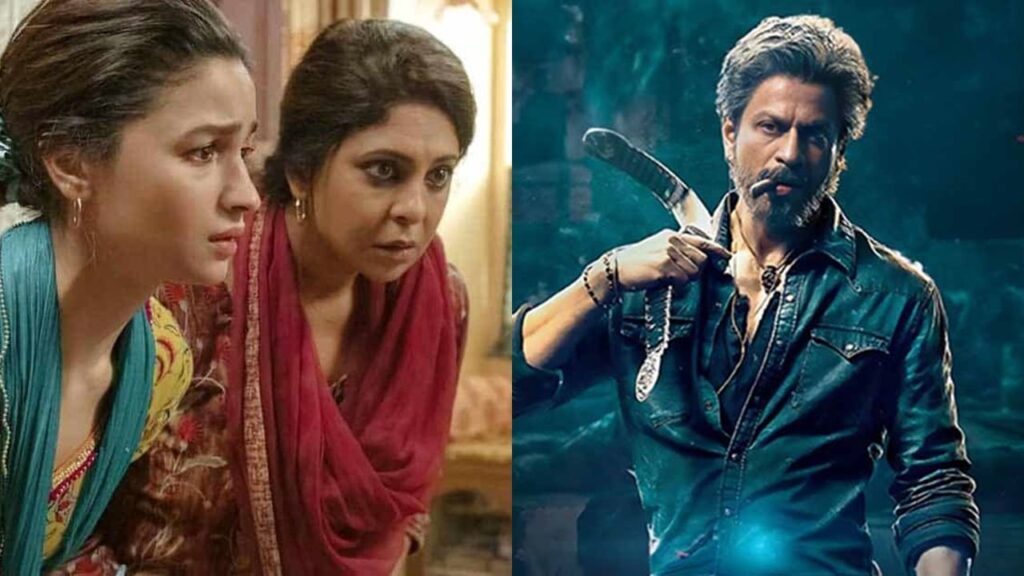Films serve as a reflection of society, often portraying real-world issues that resonate with the audience. Over the years, Bollywood has bravely tackled significant social issues through its storytelling. While many films entertain, a select few address serious topics, including the psychological and physical trauma women face. Despite advancements in society, the horrifying realities of violence against women, including rape and murder, persist. A recent grievous incident involving the rape and murder of a trainee doctor in Kolkata serves as a stark reminder of this unfortunate truth.
Historically, Indian cinema has always attempted to shine a light on heinous crimes through compelling narratives. Movies like Damini, Bandit Queen, and Pink have explored these themes, highlighting the urgent need for societal change. Beyond just sexual violence, films like Bagbaan, featuring Amitabh Bachchan, emphasize the neglect elderly parents often face from their children, while Mother India, starring Sunil Dutt and Nargis, tells the story of a mother who sacrifices everything, even her son, to protect her dignity.
The Shift in Indian Cinema
In earlier days, Indian films predominantly conveyed social messages and moral lessons, making them suitable for family viewing. However, there was a period when the industry pivoted towards making films primarily for financial gain, often featuring unnecessary violence or adult themes. During this phase, the focus shifted to box office success rather than meaningful content.
Fortunately, the tide has turned once again, with social films making a resurgence. Prominent actors like Akshay Kumar, Amitabh Bachchan, Taapsee Pannu, and Deepika Padukone have turned their attention to socially relevant topics, leading to the release of several impactful films. Titles such as Toilet: Ek Prem Katha, Badhai Ho, Pad Man, and Thappad not only entertain but also educate audiences, highlighting crucial issues in society.
Women-Centric Narratives
When discussing socially relevant films, Akshay Kumar’s contributions cannot be overlooked. His choice of subjects often revolves around women’s issues, exemplified in films like Raksha Bandhan, Toilet: Ek Prem Katha, and Pad Man, which focus on women’s health and dignity. He has not only acted in such films but has also campaigned for awareness concerning women’s health, even participating in advertisements promoting sanitary napkins.
Ashaying Kumar expressed: “I respect women and believe they should raise their voices for their rights. My aim has always been to guide women towards awareness and empowerment through my roles.” He’s also initiated self-defense training programs for women to foster self-protection and confidence in daily life.
Similarly, Taapsee Pannu is known for her roles in films like Thappad and Naam Shabana, which challenge societal norms and empower women. Taapsee firmly believes in the strength of women and emphasizes the importance of self-defense, stating, “Women must learn to protect themselves; no one will come to their rescue.” She shares a personal anecdote about carrying safety pins during her commuting days in Delhi, showcasing her proactive approach to personal safety.
Memorable Films on Social Issues
In recent years, numerous films have made a significant impact concerning social issues, leaving an indelible mark on audiences. Films like Piku, Uunchai, Paa, 102 Not Out, and Pink tackle various vital themes. Notably, shows like Black Widows and Newton also discuss topics like domestic violence and the struggle against systemic ignorance, enhancing awareness among viewers.
Current Trends in Social Cinema
Movies like My Brother Nikhil, which addresses homosexuality and HIV/AIDS sensitively, showcase the evolving landscape of Indian cinema towards inclusivity and awareness. Recent releases like Darling featuring Alia Bhatt poignantly depict the struggles women face against domestic violence, while films such as Jawan starring Shah Rukh Khan portray courage and resilience in confronting societal challenges.
In conclusion, Hindi cinema has produced several impactful films that not only entertain but also strive to impart crucial societal messages. While films are undoubtedly a source of entertainment, they also have the power to catalyze societal change. The question remains whether we, as viewers, take these lessons seriously and consider taking action towards real change in our communities.

